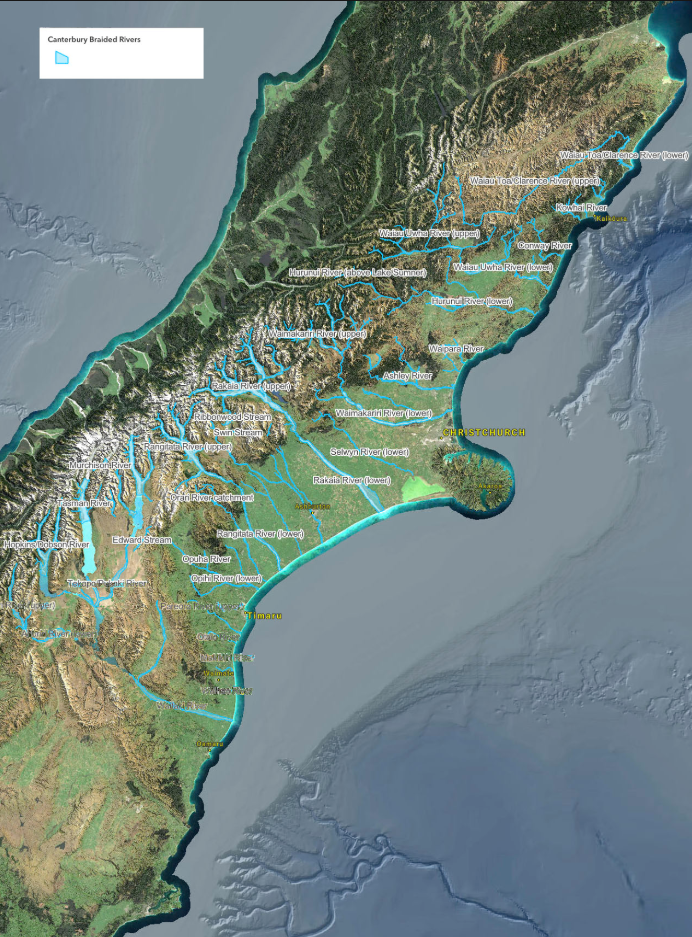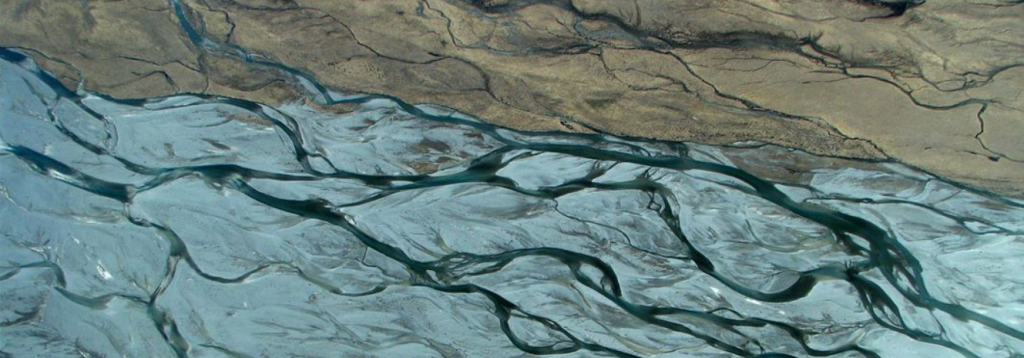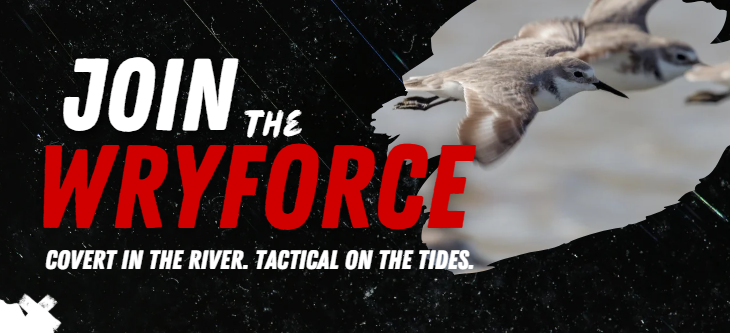Wrybill Ground Crew
Meet the people working to support Wrybill on their breeding grounds of the braided rivers.
Ashley-Rakahuri River Care

Ashley-Rakahuri River Rivercare group, ARRG was formed in 1999 in response to community concerns about the state of the Ashley-Rakahuri River. The group was keen to bring together different interest groups, from gravel extractors to bird watchers, all of whom had a common desire to reverse the decline in numbers of the unique birds like Wrybill that breed on the river. The group worked with agencies – Department of Conservation, Environment Canterbury and Waimakariri District Council to develop and implement a strategy to manage an 18km section of the river. Dedicated volunteers build, install, and check predator traps, monitor bird populations annually, undertake field research, support graduate student research, trial programmes to enhance habitats through weed clearing and island formation with the assistance of a local gravel extraction company, lead ‘river ramble’ walks during Conservation Week, and regularly visit schools and community groups. It’s not just the birds, such as Wrybill, that benefit. The community is enriched by the knowledge that a rare ecosystem is right here in their backyard and some of the most endangered birds in the world choose to call it home.
Website | Facebook
If you live near us or want to visit, the Ashley-Rakahuri River Rivercare group invite you to get to know this river, Without people doing predator control work on the river the chances of breeding success are virtually zero.
BRaid – Braided River Aid
In 2007, following the success of the Ashley River co-operative model, BRaid – Braided River Aid was formed as an umbrella group advocating for braided rivers across the South Island. BRaid works to protect, enhance and restore braided river ecosystems through co-operation and partnerships with iwi, individuals, schools, community groups, commercial and recreational stakeholders, and with government departments responsible for river management including local and regional councils, the Department of Conservation (DOC) and Land Information NZ. They work closely with Lincoln, Otago, and Canterbury Universities, Crown Research Institutes such as NIWA, and environmental management companies to support research and on-the-ground action to restore braided river ecosystems through a wide range of practical initiatives. Check their facebook page for seminars and how to get involved.
Website | Facebook

BRaid Objectives:
Promote research and management to reverse the decline of braided river ecosystems
Provide effective leadership and advocacy, and encourage co-operation between all parties whose interests and activities involve braided rivers
Collect, store, and share data and information on braided rivers through this website, newsletters, social media, workshops and seminars
Project River Recovery (DOC)

Project River Recovery maintains and restores braided river and wetland habitat in the South Island’s upper Waitaki Basin for the benefit of its native plants and animals, some of which are only found in, or only breed in, this region.
PRR was established in 1990, recognising the impacts of hydroelectric development on braided rivers and wetlands. The project is funded through a compensatory agreement with Meridian Energy Limited and Genesis Energy.
PRR’s work includes intensive weed control, predator control, construction and maintenance of wetlands, and research and monitoring programmes. This work is complemented by a public awareness campaign aimed at increasing knowledge and respect for braided rivers and their unique wildlife.
DOC: Project River Recovery

How you can help
- Vote for the Wrybill: (link live from Sept 15)
Voting is open September 15-28 - Tell a friend or neighbour – many people have never heard of this amazing little bird!
- Print or share a poster in your local café, shop, or library:
- Sign up to our newsletter for updates and learn more about the Wrybill’s incredible journey.
- Support our work to protect nesting sites on braided rivers and feeding grounds at Pūkorokoro
